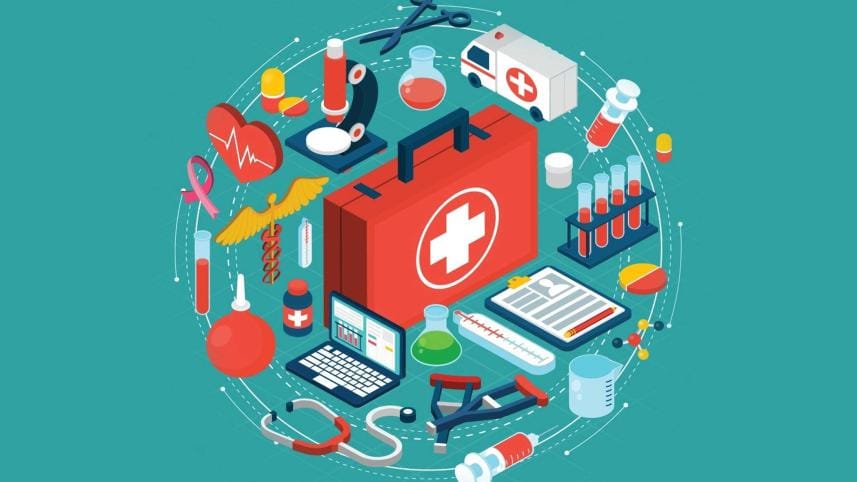World Health Day: Let South Asia build its own disease surveillance

I joined The Rockefeller Foundation in January 2009 as the head of its health portfolio in Asia and was based in Bangkok, Thailand. The foundation is known for its legacy of creating some of the finest educational and research institutions in Asia as well as the rest of the world. At that time, the foundation was pioneering universal health coverage, which also became an important part of my portfolio. I was also assigned the responsibility of overseeing its 10 years of investments in a regional disease surveillance network, called the Mekong Basin Disease Surveillance (MBDS).
The Covid crisis is often branded as a legacy of globalisation. The coronavirus knows no political borders or boundaries, it is said, and thus easily transmits from one country to another, one continent to another. The Spanish Flu in the early 20th century originated in the US. In recent times, however, many of the novel viruses, including Sars-CoV-2 (which causes Covid), originated in East or Southeast Asian countries such as China and Hong Kong, and then spread to the rest of the world. The other important fact is that many of such diseases, including Covid, have their origins in domestic and wild animals. Indeed, more than 60 percent of newly emerging diseases are said to have their origins in animals. In the Southeast Asia region, a few of the countries have their own surveillance systems to monitor and track the outbreak of any new diseases. Once an outbreak is reported, the respective institute carries out an outbreak investigation and recommends appropriate steps.
But such reporting has been within the countries themselves, with no way of reporting it to the neighbouring countries. Some health leaders of the region viewed this as a huge risk and a significant barrier in containing future pandemics. In 2001, with support from The Rockefeller Foundation, six countries of the Mekong River basin formed the MBDS as a network to exchange information on any new outbreak. The countries—Cambodia, China, Laos, Myanmar, Thailand and Vietnam—though not on good terms politically, made the landmark agreement to cooperate in order to contain future pandemics and protect their citizens' health.
The MBDS is not only a platform for information exchange, but it facilitates the member countries' ability to strengthen their respective surveillance systems through training, mock investigations, and research. They have also created 26 cross-border sites for quick exchange of information. I had the opportunity to visit a few of them and was amazed to see how the neighbouring countries worked, hand-in-hand, by using modern information technology. It is my belief that the reason why most of these countries did better during the recent crisis was largely because of the systems and capacities they built through the MBDS.
Following the MBDS footsteps, several similar networks have been established in East Africa, South Africa and the Middle East. Interestingly, the Middle East Consortium of Infectious Disease Surveillance (MECIDS) has the daggers-drawn countries of Israel, Jordan and Palestine as members.
Why can't we build a similar network in South Asia? This question has haunted me since the day I started working on it. Towards exploring such a possibility, we at Rockefeller supported an initial meeting, which was held in West Bengal, India on November 4-6, 2009. Organised jointly by the Indian Institute of Science and the New York-based Wildlife Trust, this meeting was attended by government representatives from India, Bangladesh and Bhutan. There was a lot of enthusiasm among the delegates and the meeting decided to form a network, initially among the three countries present. It also adopted a name for it: One Health Alliance for South Asia or OHASA, coined by me. Unfortunately, it didn't move beyond West Bengal. A few years later, the Saarc Secretariat in Kathmandu, Nepal organised another meeting with the majority of its member countries in attendance, aiming to form a disease surveillance network. There was also a presentation on the MBDS as an example of good practice. That, too, went into cold storage. It was frustrating and, on a later date, I lamented, paraphrasing Tagore, "Let my region awake."
In a recent paper published in The British Medical Journal (BMJ), 13 academics, researchers, health activists and development partners from South Asia, including me, called for a South Asia-wide collective response strategy for meeting the Covid challenge and its consequences. As we concluded, "An early and free exchange of ideas and options across the region could have led to a much more coherent policy response and mutual learnings to the benefit of those on low income."
With the pandemic still around, I think it is an opportune time to revamp the discussions and try to do it one more time. The theme of this year's World Health Day is "Our planet, our health." What other steps would befit this day than to take a vow to initiate disease surveillance in the region which houses a quarter of the human population on the planet? And Bangladesh has the perfect credential to take a leading role in it.
Ahmed Mushtaque Raza Chowdhury is the convener of Bangladesh Health Watch and a professor of population and family health at Columbia University in the US.



 For all latest news, follow The Daily Star's Google News channel.
For all latest news, follow The Daily Star's Google News channel.
Comments